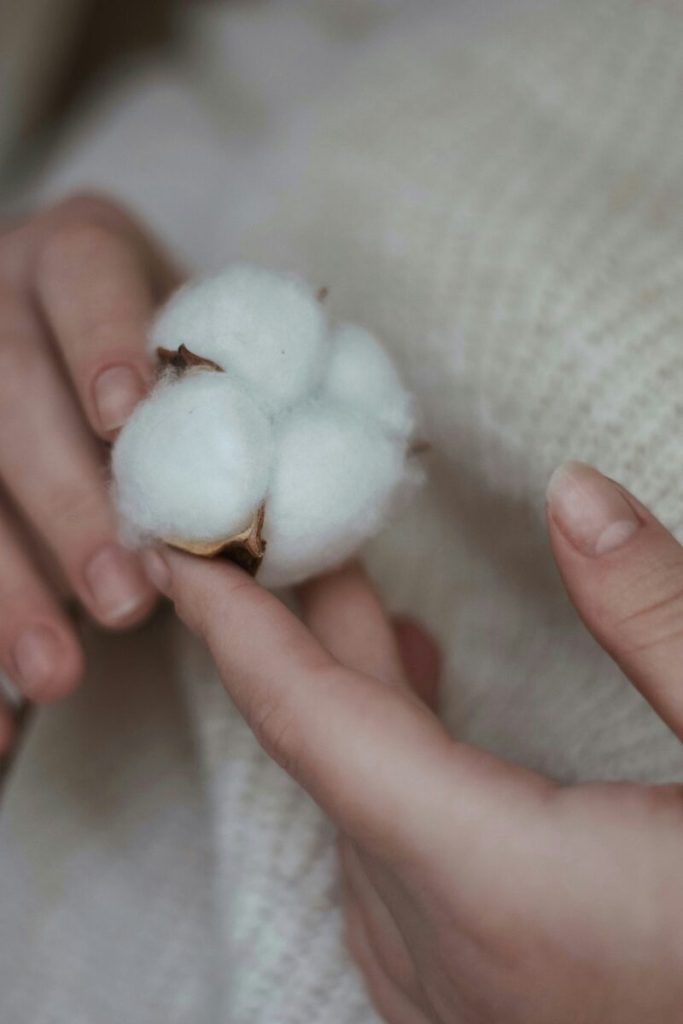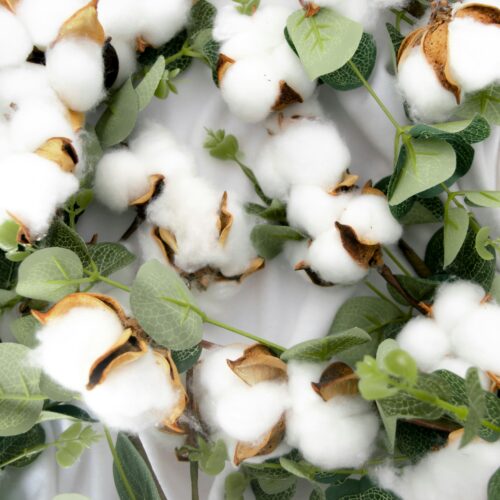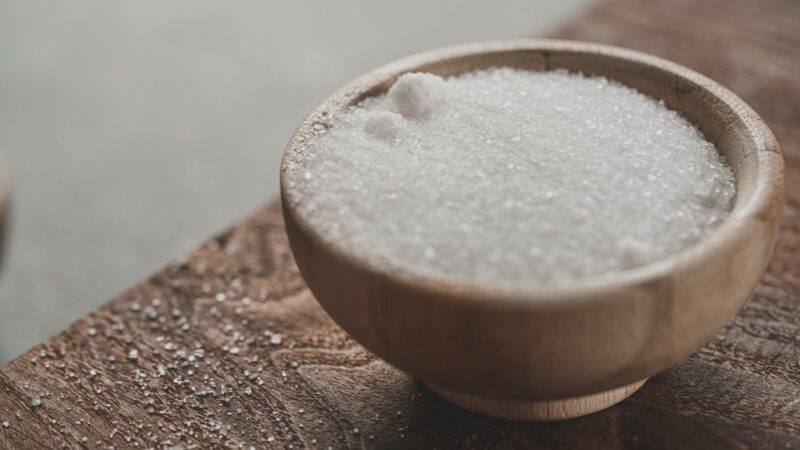Why choose organic cotton? In today’s environmentally-conscious world, consumers are increasingly looking for alternatives that promote both personal health and environmental sustainability. One such alternative that continues to gain traction is organic cotton. Known for its many benefits, organic cotton fabric is quickly becoming the best choice for everything from clothing to home textiles. But why exactly should you choose organic cotton over regular cotton or non-organic cotton?
In this article, we explore the numerous reasons to make the switch, including the benefits of organic cotton, its positive environmental impact, and how to identify certified organic cotton.
The Benefits Of Organic Cotton
There are numerous benefits of organic cotton that make it a great choice for both individuals and the planet.
- Better for Sensitive Skin: Organic cotton is free from harmful chemicals, harsh chemicals, and toxic chemicals. This makes it ideal for people with sensitive skin, babies, and anyone prone to skin irritation. The natural fibres allow your skin to breathe, regulate body temperature, and avoid exposure to residues left behind by chemical pesticides or synthetic fertilisers.
- Environmentally Friendly: Organic cotton is grown using natural methods such as crop rotation, which helps maintain soil fertility and healthy soils. It also uses less water and less energy compared to conventional cotton farming, helping to reduce water consumption and mitigate climate change.
- Healthier for Farmers and Workers: The organic cotton industry prioritises the well-being of farm workers by eliminating exposure to hazardous pesticides and providing a fair wage. This reduces the risk of birth defects, long-term health risks, and promotes overall health.
- Supports Local Communities: Organic cotton farming benefits local communities by improving livelihoods, especially in developing countries. It promotes regenerative farming practices and discourages the use of child labour and long hours with poor pay.
Why Organic Cotton Is Better For The Environment
The environmental benefits of organic cotton are profound. Traditional cotton farming is one of the most chemically intensive crops, contributing significantly to water pollution, soil erosion, and global warming. In contrast, organic cotton farming practices use sustainable farming practices that preserve ecosystems.
- Water Usage: Organic cotton uses significantly less water. While regular cotton can require up to 20,000 litres of water to produce just one kilogram, organic cotton farming focuses on rain-fed crops and improves water retention in soil.
- Soil Health: Organic cotton promotes better soil health through the use of organic farming methods and natural fertilisers, rather than depleting soil with synthetic fertilisers.
- Reduced Pollution: By avoiding harmful substances and synthetic pesticides, organic cotton reduces contamination of water supplies, protecting biodiversity and reducing the release of greenhouse gas emissions.
Organic Cotton vs. Conventional Cotton
The comparison between organic cotton and conventional cotton farming is stark:
| Feature | Organic Cotton | Conventional Cotton |
| Pesticide Use | None | Heavy use of chemical pesticides |
| Fertilisers | Natural methods | Synthetic fertilisers |
| Soil Management | Crop rotation, regenerative farming practices | Monocropping |
| Water Use | Less water required | High water consumption |
| Impact on Skin | Safer for sensitive skin | Risk of skin irritation |
| Environmental Impact | Lower | High (pollution, global warming) |
Why Organic Cotton Is Better For Your Skin
Organic cotton products are naturally hypoallergenic and gentle on the skin. Without exposure to harsh chemicals or toxic chemicals, these products help prevent skin irritation, allergic reactions, and other skin conditions. Because the organic cotton fibres are unbleached and untreated, they retain their natural fibres, making them breathable and highly comfortable.

Wearing organic cotton material can be particularly beneficial in bedding, as we spend a third of our lives sleeping. Choosing organic cotton bedding provides peace of mind and supports a healthier choice for your overall health and human health.
Sustainable Growing Practices
One of the key pillars of organic cotton farming is the commitment to sustainable practices. These include:
- Crop Rotation: This preserves soil fertility, minimises pest infestations, and supports healthy soils.
- Composting and Natural Pest Control: Rather than relying on harmful pesticides, organic farms use beneficial insects and organic compost.
- Non-GM Seeds: Organic cotton crops are grown from non-genetically modified seeds, which supports biodiversity and sustainable materials.
These practices help foster a healthier planet, reduce greenhouse gas emissions, and make a positive impact on climate change.
Is Buying Organic Cotton Worth It?
Many people wonder whether the higher price tag of organic cotton products is justified. The answer lies in long-term benefits:
- Health and Comfort: Safer for the skin, especially for babies and people with sensitive skin.
- Durability: Higher-quality organic cotton fabric tends to be more durable than synthetic fibres.
- Peace of Mind: Knowing that your choices are contributing to a healthier planet, better supply chains, and ethical labour practices gives invaluable peace of mind.
When you consider the hidden costs of regular cotton—from water pollution to health risks—it becomes clear that organic fabrics are not just a trend, but a sustainable and excellent choice.
How To Know If It’s Certified Organic Cotton
When purchasing, always look for certified organic cotton labels to ensure authenticity. The Global Organic Textile Standard (GOTS) is one of the most reputable certifications. It ensures the cotton is truly organic throughout the entire supply chain—from seed to shelf.
Other things to look for:
- Clear labelling that states “100% organic cotton”
- Certifications from recognised bodies like GOTS, USDA Organic
- Transparency in the manufacturing process
Where To Buy Organic Cotton
With increasing awareness, it is easier than ever to find organic cotton products online and in shops. Here are some suggestions:
- Online Retailers: Websites like Pact, Patagonia, People Tree, and Coyuchi specialise in organic textiles and ethically produced goods.
- Local Organic Shops: Many shops that sell organic food also carry organic fabrics and clothing.
- Fair Trade Markets: These markets often highlight products made with organic materials and by organic farmers.
Here are 11 places to buy organic cotton in the UK:
- People Tree – A pioneer in sustainable and Fair Trade fashion. The first international fashion brand certified by the World Fair Trade Association.
- BAM Bamboo Clothing – Offers organic cotton basics alongside bamboo clothing.
- Thought Clothing – Sells organic cotton garments for all genders.
- Frugi – Specialises in organic cotton clothing for children and babies.
- Pact Clothing (via UK retailers) – Popular for basics and underwear. (However they are VERY expensive)
- Organic Basics – Offers a minimalist range of organic cotton essentials. They offer a great range of basic items and base layers.
- Boody UK – Focuses on organic and sustainable basics including underwear.
- Greenfibres – UK-based shop offering organic cotton bedding and clothes.
- Nui Organics – Known for children’s and baby wear made from organic materials.
- Howies – Offers high-quality, sustainable clothing made in the UK, including organic cotton items.
- Secret Linen – Specialising in organic cotton bed linen at affordable prices.
Many companies also highlight the origin of their cotton, including from countries like South Africa, British Virgin Islands, Western Sahara, St. Kitts & Nevis, Svalbard & Jan, Caicos Islands, and British Indian Ocean Territory, where efforts are being made to adopt sustainable farming practices.
So, Why Choose Organic Cotton?
The transition to organic cotton represents more than a shift in material—it’s a lifestyle commitment to sustainable practices, ethical labour, and personal health. The benefits of organic cotton are extensive: it’s better for your skin, the planet, and the people who grow and process it.
Next time you shop for clothing, towels, or bedding, remember the long-term value of choosing organic cotton. It’s not just about what you wear—it’s about making choices that benefit the entire planet.
Choosing certified organic cotton gives you a connection to organic cotton farmers, ensures the use of natural fibres, and supports a sustainable future. It’s an excellent choice, a great choice, and perhaps the best choice we can make for a healthier planet and future generations.
Why choose organic cotton – because it’s better for you in every way!




